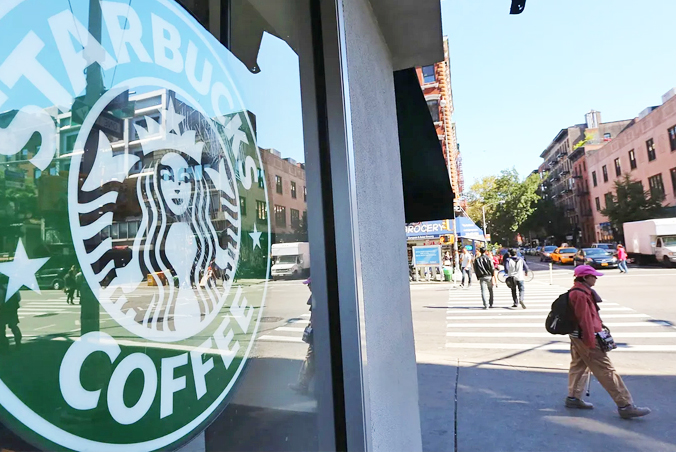When shopping for a home, you want to look for a neighborhood where homes will be increasing in value. It turns out that picking a home located near a Starbucks may be a clue as to how much your home value will increase, especially in D.C., Boston, and Philadelphia. In Washington, D.C., “homes within a quarter mile radius of Starbucks increased 151.4 percent, a difference of 29.6 points” from homes not located near the coffee chain. [Learn more]
As housing prices continue to rise, more homes enter the million-dollar price category. San Francisco is a perfect example of how quickly housing prices can rise, with the number of million-dollar properties in the city doubling since 2010. Today, nearly two-thirds of homes in the city are worth more than a million dollars – watch how the spread of million-dollar homes has practically consumed the city.
The number of million dollar homes in D.C. is also rising. Yet another neighborhood broke the million-dollar price threshold – Brookland. This house was originally put on the market for $999,750, but within 10 days, the listing agent received multiple offers, and it sold for exactly $1 million. The seller purchased the home in 2014 for $390,000, making a great return on their investment.
With so many houses appreciating in value in the District, many sellers are realizing large gains. Those who faired well in selling a single-family home in 2015 were long-time owners (14 years or more), with median gains of $324,000, and recent buyers (less than 5 years), with gains exceeding $100,000. The lowest gains were for those who had purchased their homes 8 to 9 years ago at the height of the previous housing boom – for these sellers, the median gain was only $46,000.
But if real estate in D.C. is so pricey, then why are there still so many vacant properties? One reason is because there is a loophole in the DC law when it comes to taxing vacant and blighted properties.
Usually, residential property taxes in DC are 85 cents for every $100 of the house’s assessed value. But if a house is vacant, the tax is nearly six times that much. There are ways to lower that cost. Some methods are to install a new door, pull a construction permit to do work on the house, or apply for an exemption if there is active civil case or probate proceeding regarding the house. If you or your family owns a vacant home that is being charged higher taxes, you should contact an attorney to determine if there is a way to lower the amount owed.
Solar panels are becoming more and more accessible to homeowners, with options to both lease and buy that can reduce your energy bill. But if you’re planning on selling, you may want to think twice before leasing solar panels and read your lease with the solar power company carefully.
Some homeowners in D.C. learned this lesson the hard way, when they signed a 20-year lease with the solar power company and then put their house on the market. They were faced with a $32,000 bill if the buyer did not assume their contract with the solar power company, and all three buyers who had put in offers walked.
Even without leasing solar panels, there are lots of options to make your house more energy efficient – this couple in Capitol Hill reduced their carbon footprint without spending much money, incorporating everything from a backyard composter to a clothes line into their daily routine.
If you’re looking to rent rather than buy in the District, you may want to start looking…at your local farmer’s market? Dwell Direct (owned by JBG) is using a food-truck concept to lease properties to residents, “rolling up to local farmers markets, festivals and street corners.”
And finally, if you want to see an entire D.C. building moved in under a minute, check out this video of 655 New York Avenue moving a few doors down from its original location.
Forster Law Firm, PLLC is based in Washington, DC and focuses on real estate, estate planning, probate, and small business matters.
If you’d like to speak with one of our attorneys, please call our office at (202) 400-2489 to schedule an appointment.
Content Disclaimer:
The information provided on this website does not, and is not intended to, constitute legal advice; instead, all the information on this site is for general informational purposes only. Use of, and access to, this website or any of the links or resources contained within the site does not create an attorney-client relationship between the reader, user, or browser and Forster Law Firm.


